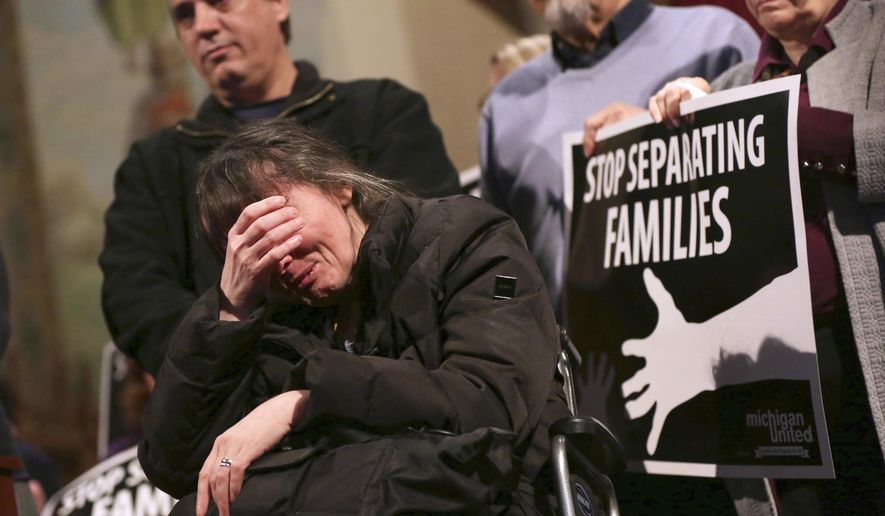The Justice Department fired off letters to 23 states, cities and counties Wednesday demanding they prove their police policies don’t break a federal law requiring information-sharing when it comes to immigration.
It’s the latest move as the Trump administration tries to pressure jurisdictions to drop sanctuary policies that protect illegal immigrants from being reported to U.S. Immigration and Customs Enforcement.
Those that fail to cooperate could lose access to future federal grant money, and could even have money dating back to 2016 clawed back.
The states of Illinois, Oregon and California were put on notice, as were Chicago and Cook County, New York City, Denver, Los Angeles and San Francisco, among others.
Some of those communities tried to blow off previous requests for information about their policies with inadequate evidence, so the new letters warn those that don’t take the new requests seriously that they could face subpoenas.
“Protecting criminal aliens from federal immigration authorities defies common sense and undermines the rule of law,” Attorney General Jeff Sessions said. “We have seen too many examples of the threat to public safety represented by jurisdictions that actively thwart the federal government’s immigration enforcement—enough is enough.”
President Trump’s push to punish sanctuary cities has run into trouble, with federal judges blocking efforts to impose new requirements such as allowing immigration agents into jails.
But the judges have said the administration can enforce Section 1373, a part of federal law that requires local governments to share information they have when it’s requested by U.S. Immigration and Customs Enforcement.
The Obama administration flagged 10 communities in 2016 it said could be violating Section 1373. The Trump administration has been following up on that review, clearing some jurisdictions while adding others to the list.
The law doesn’t require jurisdictions to hold illegal immigrants beyond their usual release times, nor does it require local sheriff’s or police departments to assist in investigation of arrest of illegal immigrants. But it does set a standard for communication.
“This is about the basic requirements to simply communicate with federal law enforcement authorities over at ICE regarding the immigration status of those who are already in their custody,” a senior Justice Department official said.
The new inquiries set a Feb. 23 deadline for the information to be returned.
• Stephen Dinan can be reached at sdinan@washingtontimes.com.




Please read our comment policy before commenting.